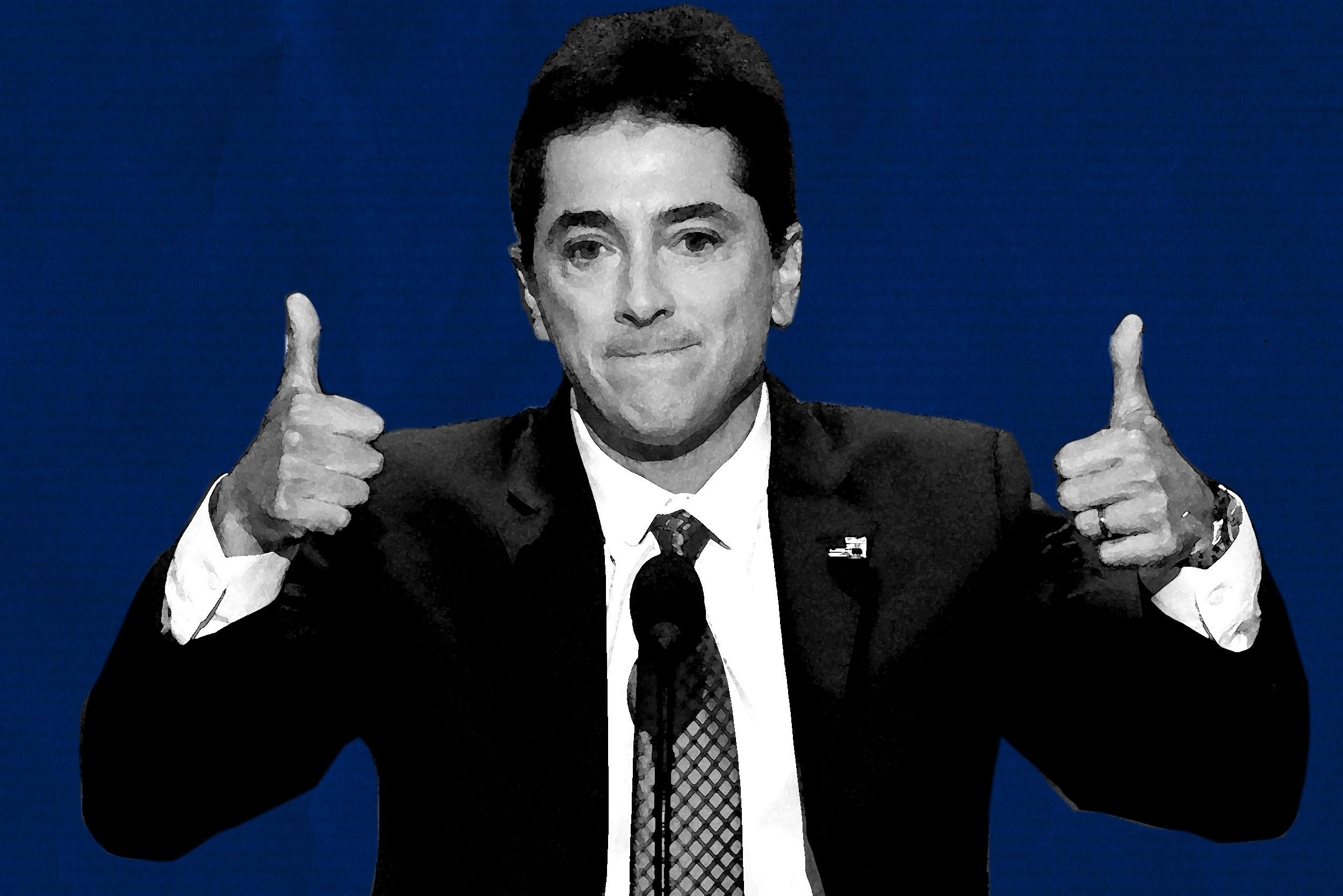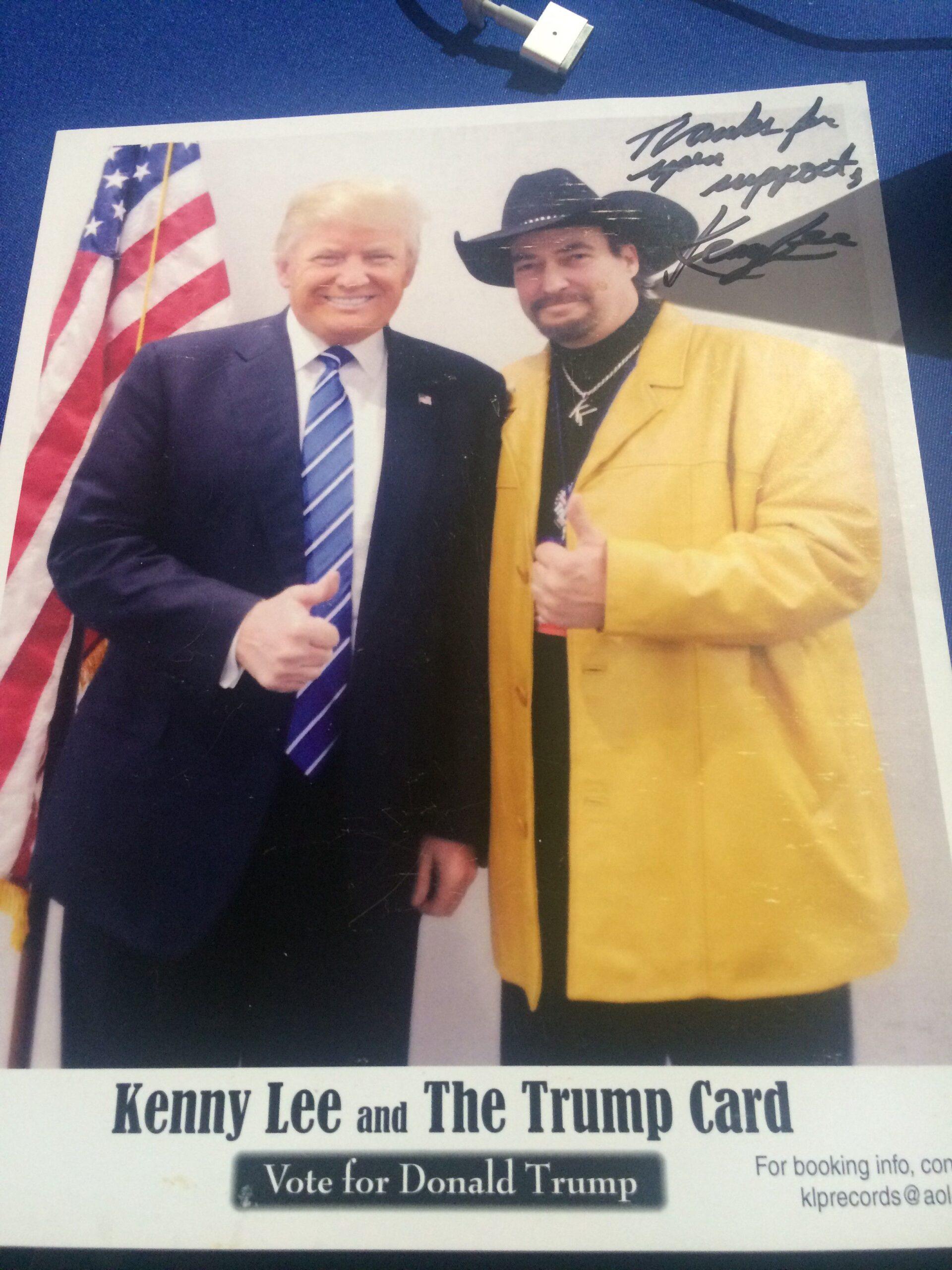The Search for a Republican Celebrity
Scott Baio is at the Republican National Convention. But where’s Tom Brady?
Cleveland is demanding our attention. From the Republican National Convention to the Cavaliers’ NBA championship, the Indians’ recent dominance to a surprising tech scene, we’re thinking about the city more than ever. This week,The Ringer is exploring why Cleveland matters.
At 8:09 tonight, Scott Baio walked onto the stage at the Republican National Convention. Of all the miraculous sentences typed during this campaign, that one’s right up there. Baio wore a red tie, an American flag lapel pin, and a nervous smile.
If you squinted, you could mistake Baio for a lieutenant governor on the make. He served up the GOP gospel of self-reliance: America “doesn’t mean getting free stuff.” He took the convention’s first prime-time shots at Hillary Clinton. Baio even adopted the language of politicians. The delegates arrayed before him were “folks”; America was “her.”
As recently as mid-June, Donald Trump was musing that the Republican National Convention would have a “Winner’s Night.” His guest list might include Serena Williams, Tim Tebow, even Tom Brady. Their collective trophies would save Trump the trouble of lathering on his favorite theme of winning, winning, winning.
Scott Baio is not a winner. I know this because I asked Kris Shafer, an alternate delegate from Texas, if he knew who Baio was.
“No, sir,” Shafer said. “I do not recognize that name.”
And what about Antonio Sabato Jr., the former soap opera star, whom Trump also put on in prime time?
“I do not recognize that name, either,” Shafer said.
You could have seen a Trump-led GOP Convention going a bunch of ways. One almost unimaginable outcome was that Trump’s family members would be the event’s biggest nonpolitical stars. It seems like it was Trump’s biggest nightmare, if not for the implied compliment.
But this is the irony of the Cleveland convention: The Republicans have nominated a celebrity who succeeded in repelling everyone else who fit the type. As Trump adviser Barry Bennett told me, “My 10-year-old’s version of celebrity and this version of celebrity are quite different. Bieber’s not coming.”

The biggest reason that celebrities, even sympathetic ones, skipped Cleveland is because it would damage their brands. Look how Tom Brady carefully danced around the idea of an endorsement after reporters found a “Make America Great Again” hat in his locker.
The second reason is that Republicans don’t think their aesthetic has much in common with celebrities. “Pop culture is sometimes … incongruent with conservative values,” said Bennett. In his speech Monday, Duck Dynasty’s Willie Robertson didn’t much tout his own winning but suggested that coastal elites sneer at “regular folks.”
Political conventions tend to change the idea of who you think is a celebrity. Before Monday’s prime-time session, I saw a mob form outside Section 103 of Quicken Loans Arena. I made my way to its center and found Fox News ambush artist Jesse Watters taking selfies. When Watters finally escaped into the network’s lounge, Fox’s Charles Krauthammer rolled out in his wheelchair. Krauthammer was mobbed, too. One Mississippi attendee, Mark Cumbest, was thrilled to score selfies with both.
Trump figured to have better luck with sports celebrities. But minus a Curt Schilling here or there, sports is in the midst of its own lefty political renaissance. Trump got so desperate that, according to The New York Times, he insisted on inviting boxing promoter Don King to speak. Trump’s advisers had to remind him that King had been convicted of manslaughter. (King made it to Radio Row of his own volition.)
A few weeks ago, I happened to be talking to King for another story, and I discovered a second reason to keep him off the podium. King delivered a long, stream-of-consciousness endorsement of Trump — basically, a preview of his convention speech. As a kind of coda, he exclaimed, “They’re treating Trump like a black man!”

Early Monday afternoon, I went to a rally near the banks of the Cuyahoga River. There was a merch table piled with CDs, T-shirts, and 8-by-10 photos. Here were the trappings of celebrity. But the goateed, cowboy-hat-wearing face that adorned the merch was unfamiliar.

Who is Kenny Lee? I asked the woman behind the table.
“He wrote and sang Donald Trump’s campaign song,” she said.
I didn’t know Trump had a campaign song other than “Rolling in the Deep.” Kenny Lee sounded interesting. Where could I find him?
“Why don’t you go knock on the door of his RV?” the woman said, nodding at a parking lot down the hill.
I bought an 8-by-10 and made my way to Lee’s RV, which, it turns out, is actually his tour bus. It was parked in the shadow of the Detroit-Superior Bridge. Inside was Lee, a tall, middle-aged man wearing a black Stetson and ostrich-skin boots. The boots cost about three grand. “I was a celebrity before Trump,” he told me.
Who, you might delicately ask, is Kenny Lee? Well, he is a practitioner of Southern rock. If he were to locate himself musically, it would be in the Red American DMZ between Lynyrd Skynyrd and Hank Williams Jr.
A song played on the bus’s sound system. “That’s one of my new ones,” Lee said.
What’s the name of it? I asked.
“‘Addicted to Love,’” he said. He paused. “I think that’s what it’s called. … Uhhh.” He yelled across the bus: “What’s the name of this one — remember? Anyway, don’t worry about it.” Lee had a lot on his mind.
Kenny Lee (per Kenny Lee) anticipated the Trump phenomenon. A friend who works for Trump told him the Donald was toying with a run for the White House. “I said, ‘Hmm, interesting. I think he’d make a great president. I’m going to write a song that’s how I feel, and that’s probably the same way he feels, I’m sure.’ And it was. ’Cause everything I put in that song, he’s sayin’ now.”
“The Trump Card” includes lyrics like this:
Sometime after the song went into rotation on country radio, Lee met Trump at a rally in South Carolina. Trump thanked him for the song. They took a photo together — the same photo Lee was now selling for $5 at the merch table. The precise composition of the photo was really important to Trump, Lee said. After every shot, Trump would walk over to the camera, inspect the results, and suggest they try again. They took nine or 10 shots before Trump approved of one.
Kenny Lee’s personal highlight from the campaign was a rally — he thinks it was in Maryland — where protesters from Black Lives Matter showed up. Lee played “The Trump Card.” “They backed up. They had to. Nobody could hear ’em talk. We drowned Black Lives Matter out. They didn’t stand a chance with ‘The Trump Card.’”
“We need Donald Trump to be our president,” Kenny Lee said. “There’s no doubt. Hillary Clinton — my god. No way, man. No way. I’m going to tell you, China” — he pronounced it like the name Shauna — “will be the new world leader in two years. Mark my words. She sucks!”

The pop-culture warriors pushed out on the Quicken Loans stage Monday were a lot more soothing than Kenny Lee. I heard the best theory of RNC celebrity from Brandt Iden, a delegate who serves in the Michigan House of Representatives. In 2016, the noncelebrity celebrity is a stand-in for the nonconservative Republican. John McCain skipped the convention? No Mark Kirk? No prob. Antonio Sabato Jr. can preach that Trump “believes in one America, with liberty and justice for all.” He’s a conciliatory figure from a gentler world.
The final reason the Cleveland convention didn’t have any real celebrities is because those aren’t the celebrities the GOP rank-and-file want. Some of the most explosive cheers Monday night came for Lone Survivor author Marcus Luttrell and Milwaukee Sheriff David A. Clarke; retired Army Lieutenant General Michael Flynn — a Trump veep candidate, it seems, for a time — got a prime-time slot.
Bennett, the Trump adviser, said: “I think a Republican crowd’s as much interested in hearing from General Flynn as they are from Justin Bieber.” He quickly added, “Although I would go to the Justin Bieber concert.”

